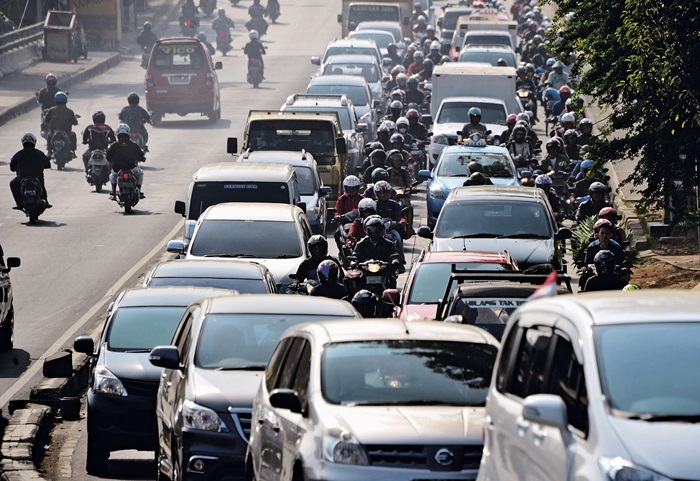The 2018 Global Traffic Scorecard produced by traffic analytics company INRIX reported that Moscow, Russia is the most congested city in the world. Here in Jakarta, people still have to deal with the gridlock during rush hours. With the introduction of the MRT, will Jakarta see a slight reduction in traffic woes?

Istanbul, Turkey, Bogota, Colombia, Mexico City, Mexico, and Sao Paulo, Brazil follow Moscow on the list of the world’s most congested cities. While Jakarta may not be in the top five, residents in the city battle gridlocked streets for hours everyday. In Asia, Jakarta, along with Bangkok and Chongqing are among the most congested cities.
Although the city has had a bus system for many years now, the recent introduction of the MRT and the upcoming LRT may help ease this congestion.
At the moment, the Jakarta Police Traffic Department has implemented an odd-even traffic policy which will later be replaced by ERP (Electronic Road Pricing System) policy by the end of this year. In the future, using private vehicles will be more expensive as the government plans to set ERP and parking permits at high rates. Jakarta will also welcome the MRT and expects that it will carry 173,000 commuters per day. The LRT system, which is currently under construction, is expected to carry 500,000 passengers a day.
A report by Indonesia Traffic Watch (ITW) explains that the city’s traffic problem will not be solved in 2019. The average commute time is 1.5 to 3 hours per trip. During inclement weather, this increases. The Inner Ring Road is most congested during rush hours, despite charges levied from users. In the greater Jakarta area, the toll project has also caused congestion in areas such as Cikampek and Bekasi highway.
According to the TomTom congestion index, drivers waste an average of 184 hours a year in traffic. National Development Planning Agency (Bapennas) notes that traffic congestion in greater Jakarta costs IDR 65 trillion in annual losses. Jakarta’s miserable traffic is a result of the city’s overwhelming importance in the nation’s economy.
The national government is involved in solving the capital congestion by speeding up the transit-oriented development (TOD) to make the city more integrated and, in effect more efficient. Badan Pengelola Transportasi Jabodetabek (BPTJ) is designated to do the job in managing transportation in Greater Jakarta under the Jokowi administration.
One of the reasons for this congestion is the unregulated purchase of private vehicles. According to City Department of Transportation, there are around 1,500 vehicles distributed everyday around Jakarta with around 1,200 motorcycles and 200 cars. In 2018, there were 8 million motorcycles in Jakarta, according to data. While the government tries to solve the traffic problem, the automobile industry continues to distribute a high number of private vehicles. Everyday, there are nearly 180 million vehicle passing through the capital. So, one can just imagine how bad the streets are.







